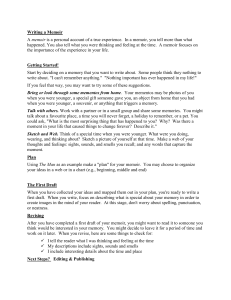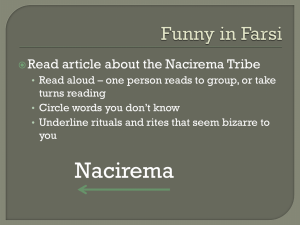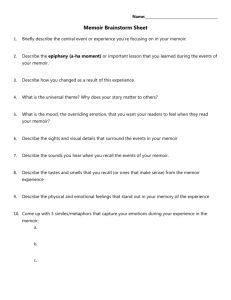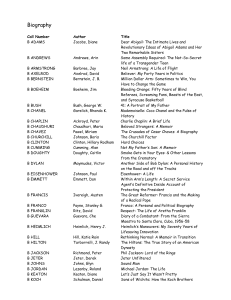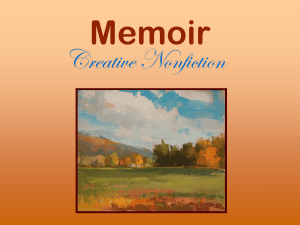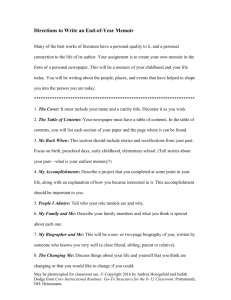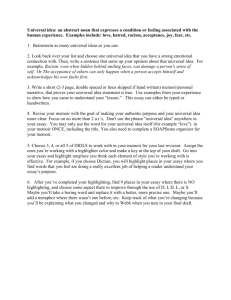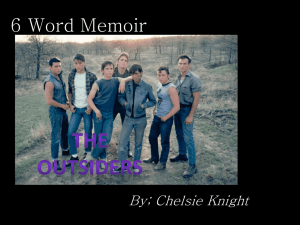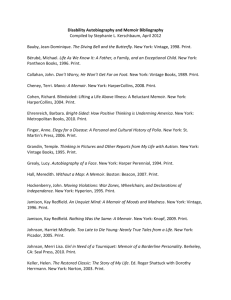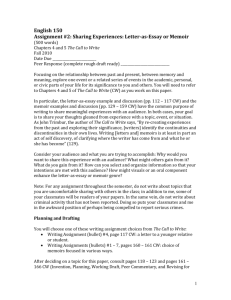Written Text Production #1
advertisement
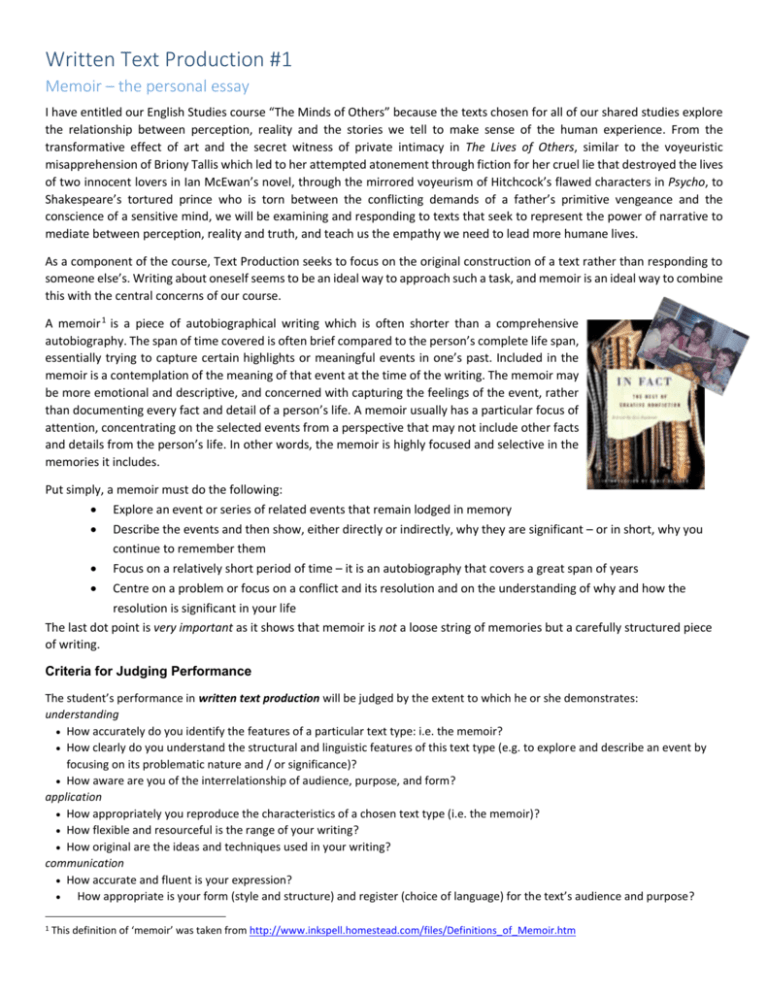
Written Text Production #1 Memoir – the personal essay I have entitled our English Studies course “The Minds of Others” because the texts chosen for all of our shared studies explore the relationship between perception, reality and the stories we tell to make sense of the human experience. From the transformative effect of art and the secret witness of private intimacy in The Lives of Others, similar to the voyeuristic misapprehension of Briony Tallis which led to her attempted atonement through fiction for her cruel lie that destroyed the lives of two innocent lovers in Ian McEwan’s novel, through the mirrored voyeurism of Hitchcock’s flawed characters in Psycho, to Shakespeare’s tortured prince who is torn between the conflicting demands of a father’s primitive vengeance and the conscience of a sensitive mind, we will be examining and responding to texts that seek to represent the power of narrative to mediate between perception, reality and truth, and teach us the empathy we need to lead more humane lives. As a component of the course, Text Production seeks to focus on the original construction of a text rather than responding to someone else’s. Writing about oneself seems to be an ideal way to approach such a task, and memoir is an ideal way to combine this with the central concerns of our course. A memoir 1 is a piece of autobiographical writing which is often shorter than a comprehensive autobiography. The span of time covered is often brief compared to the person’s complete life span, essentially trying to capture certain highlights or meaningful events in one’s past. Included in the memoir is a contemplation of the meaning of that event at the time of the writing. The memoir may be more emotional and descriptive, and concerned with capturing the feelings of the event, rather than documenting every fact and detail of a person’s life. A memoir usually has a particular focus of attention, concentrating on the selected events from a perspective that may not include other facts and details from the person’s life. In other words, the memoir is highly focused and selective in the memories it includes. Put simply, a memoir must do the following: Explore an event or series of related events that remain lodged in memory Describe the events and then show, either directly or indirectly, why they are significant – or in short, why you continue to remember them Focus on a relatively short period of time – it is an autobiography that covers a great span of years Centre on a problem or focus on a conflict and its resolution and on the understanding of why and how the resolution is significant in your life The last dot point is very important as it shows that memoir is not a loose string of memories but a carefully structured piece of writing. Criteria for Judging Performance The student’s performance in written text production will be judged by the extent to which he or she demonstrates: understanding How accurately do you identify the features of a particular text type: i.e. the memoir? How clearly do you understand the structural and linguistic features of this text type (e.g. to explore and describe an event by focusing on its problematic nature and / or significance)? How aware are you of the interrelationship of audience, purpose, and form? application How appropriately you reproduce the characteristics of a chosen text type (i.e. the memoir)? How flexible and resourceful is the range of your writing? How original are the ideas and techniques used in your writing? communication How accurate and fluent is your expression? How appropriate is your form (style and structure) and register (choice of language) for the text’s audience and purpose? 1 This definition of ‘memoir’ was taken from http://www.inkspell.homestead.com/files/Definitions_of_Memoir.htm Further style tips for personal writing Memoir relies on facts tempered by reflection, lying somewhere between narrative and the personal essay. But to enable readers to relive the anecdotes at the heart of any memoir, the memoir writer must adopt the tools of a storyteller. Good storytellers… Use suspense. Gradually unfold the story. Don't tell everything up front, but tease the reader along. Build toward something. Show instead of tell, so that the reader has to figure some things out. (Juxtapose bits of information instead of overtly explaining everything.) Set little scenes so the reader can visualize what’s happening. Use some dialogue to make the reader (or listener) feel somehow present as a witness or (eavesdropper). Show change in a character (including, especially in a memoir, yourself), rather than just announcing it. (In fiction, an internal change in a character has to be manifested externally. A good storyteller does the same when dramatizing her/his own experience.) Don't always begin at the beginning. Grab the reader's attention. (A narrative hook is just as important in personal narratives as it is in fiction.)
